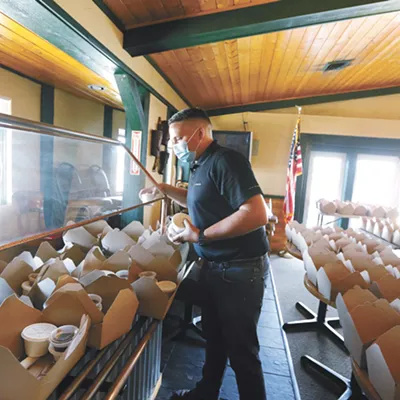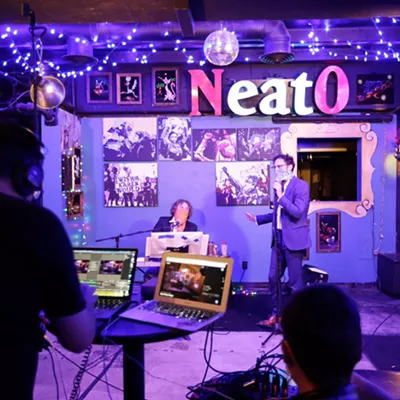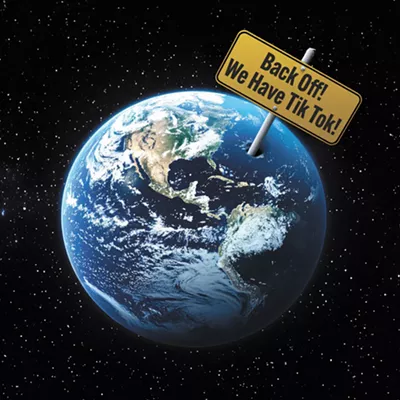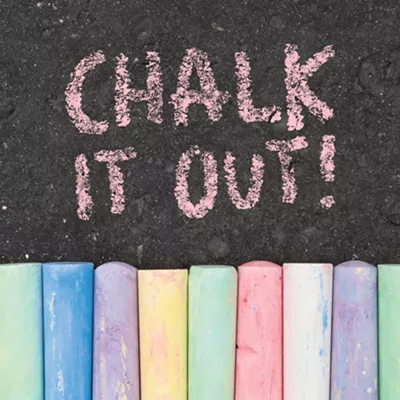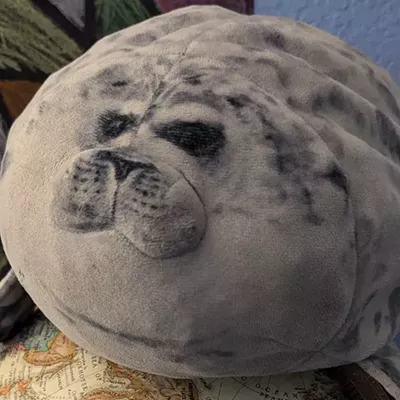
Five years and one month ago, I wrote my first column for this newspaper, a few weeks into the COVID lockdown.
Like most people, I was bewildered and exhausted. I was checking case numbers, stocking up on canned goods and disinfecting every light switch in my house at 11:15 every night, just because it felt like something I could control.
More than anything, I was worried about my kids. Henry was 11, Danny was 8. I'd pictured them entering an idyllic time of independence and adventure, and that vision was rapidly — and bizarrely — gone.
As the loudest among my many loud thoughts, that worry was what I wrote about when the Inlander invited me to contribute to a series of early pandemic reflections from local writers (all of which are startling and beautiful to revisit). I tried to be honest about my grief, about the impossibility of parenting two little boys through an impossible time.
"This isn't the spring I wanted for my kids. Nobody, obviously, wanted this," I wrote. "But it's what we've got. This is our spring."
My mind has gone back to that first line so many times in the past five years, rewording and reapplying it again and again.
This isn't the summer I wanted for my kids. This isn't the school year I wanted. Not the election I wanted, not the environment I wanted, not the country I wanted. This isn't the world I wanted for my kids.
It's a little silly how repeatedly I've had to realize that all times are impossible times.
Today, my two bright-eyed little boys are gangly teenagers with square jaws and opinions about everything along with their wildly creative minds and an absolute inability to fold their own socks. They are brilliant beings.
When I think about our pandemic spring, I'm still sad for what they lost, and I can see how that loss still ripples through them. But I also see how it deepened their compassion and their understanding that the story is not, in fact, all about them.
When I look into the future, that's what I hope they remember most.
Five years and one month from today, my two gangly teenagers are going to be adults. (It shocks me just to type that.) Henry will be 21, and Danny will be graduating from high school.
It's a damn safe bet that times are still going to be impossible. This imperfect world is still going to be full of imperfect people (my two brilliant beings included), unpredictable events, bewilderment and exhaustion and grief. It will not be the world I want for my kids.
I'm still realizing, slow-realizer that I am, that the real question is what kind of kids I want to give to the world.
That's why I want them to remember what they learned during those months of lost independence early in the pandemic: Interdependence matters more. They're part of an inextricably connected web of humans and organisms and landscapes, and their actions matter.
They're going to be told otherwise, especially because they happened to be born white American boys. They're going to be offered power at the expense of others. They're going to be urged not to care so much, to believe that empathy and compassion are for the foolish and weak. They're going to be told the story is all about them.
I worry about that. (I guess a mother always has to worry about something.) But I see, too, how they're already taking the things they've learned and going in another direction.
At a pro-democracy rally a few weeks ago, Henry volunteered to lead half the march, carrying the flag of Idaho.
After a legislative session full of fear and derision and discrimination, he'd be justified to say this is not the state I want and walk away. Instead, he stood on a rock in the ice-cold rain and waved the flag, because he believes he can be part of making this state better.
That's what I want for my kids. I want them to look at the world, see its brokenness, and love it anyway. I want them to love it so much, they're willing to fight and work and care.
I want them to know this is the only world we've got, and it's not just theirs. It's ours. ♦
Tara Karr Roberts is a writer who lives in Moscow with her husband and sons. Her novel Wild and Distant Seas was published in January. Follow her on Bluesky and Instagram @tarabethidaho.





